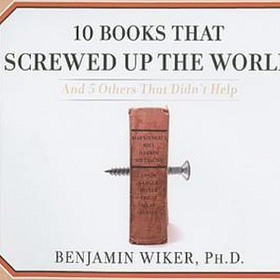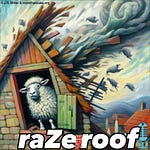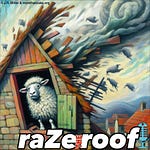Ideas have consequences and so today Joe Miller and Leroy Hill are joined by George Haraksin to offer a biblically sound and philosophically robust discussion of The Manifesto of the Communist Party by Karl Marx and Friedrich Engels. They’ll show how this treatise is behind many of today’s biggest headlines. Through their witty banter, the guys till the soil of culture to sow the seed of the Gospel. Tune in live to see how these ideas have shaped the Western worldview, and maybe even deformed the worldview of many Christians.
REFERENCES
10 Books that Screwed Up the World: And 5 Others That Didn't Help by Benjamin Wiker
The Manifesto of the Communist Party by Karl Marx and Friedrich Engels
The Part Played by Labour in the Transition from Ape to Man by Friedrich Engels
Karl Barth and Radical Politics, by George Hunsinger
“On body count alone, The Communist Manifesto could win the award for the most malicious book ever written.” — Benjamin Wiker
EPISODES IN THIS SERIES
10 Books that Screwed Up the World
If you want to understand the culture, you need to understand philosophy. But if that task seems overwhelming, this podcast series is just for you.
STUDY GUIDE
Marxist Worldview and Human Origins:
Evolutionary Influence: Marx and Engels were significantly influenced by evolutionary thought, though they had different perspectives. Engels emphasized the role of labor in human evolution, arguing that it was labor for the benefit of community, as opposed to the more "enlightened view of the mind," that was the real driver of evolution. The hosts summarized,
Marx's Implicit Teleology: There is discussion of Marx seeming to have an idea of human nature "that needs to be realized," bringing in an almost Aristotelian telos. This contrasts with his materialism and highlights potential inconsistencies in his thinking.
Community as the Ultimate Value: Community as a primary value in Marx's framework which is in stark contrast to the Western focus on individualism.
"Marx seems like a brilliant philosopher who invented an entire political system to shield himself from blame while holding everyone else in society responsible for his problems." — Joseph R. Miller
Purpose of Life in Marxism
Dialectical Materialism: The Marxist view of knowledge is "the scientific study of history to discern laws and then apply those laws to our context to refine and perfect our labor."
Material Needs First: Engels said Marx believed that, "mankind must first of all eat, drink, have shelter and clothing before it can pursue political science, art or religion." This highlights the materialism at the heart of Marxist philosophy.
Rejection of Bourgeois Pursuits: Marxists believe that the pursuit of individual purpose is a "fool's errand of the bourgeois."
Focus on Economic Alienation: While metaphysical naturalism focuses on science, Marxists focus on the "horizontal alienation...specifically economic alienation," between human beings.
Marxist Views on Family and Marriage
Critique of Bourgeois Family: The hosts explore Marx's view that the bourgeoisie has reduced "the family relation to a mere money relation." This critique resonates with some Christians, according to the podcast hosts, who might see similar issues in contemporary society.
Materialist Perspective on Family: Marxism views children merely as a product of a marriage that serve the material needs of the community, dehumanizing the parent-child relationship.
Morality and Ethics in Marxism
Imported Moral Terms: Marx has to import terms like "morality" and "justice" from other worldviews because they don't fit with his overall atheistic materialism.
Transcending Moral Categories: Marx tries to transcend moral categories, even though he can't completely do so in his writing.
Capitalism's Wrongness: While not directly arguing that capitalism is objectively unjust, Marx sees it as not promoting "the kind of community, idealist community that he's thinking of". In addition, "Marx thought that capitalism wasn't the best way for human beings to live. It must be transcended."
Modern Manifestations of Marxist Ideas
Woke Rhetoric: Discussed the ways that Marxist ideas, particularly around identity and oppressed vs. oppressor, are used in the "woke right" and other contexts.
Resentment and Victimhood: The conversation posits that Marx's appeal is based on resentment and the idea that those in lack are victims of an oppressive system.
Dark Utilitarianism: The discussion brings up examples of people who use a Marxist framework to justify using violence as a means to achieve a greater good.
Christian Response and Engagement
Focus on Clarity over Agreement: Seek to understand the Marxist worldview before attempting to argue against it, focus on clarifying points of disagreement.
Redeeming Work: Contrasting to Marxist views, Christians see work as inherently good and even "sacred", created by God and should try to redeem it.
Intrinsic vs. Instrumental Value: The hosts emphasize the Christian view that humans have intrinsic value, and work is an instrumental good, while for Marxists they see labor as intrinsically good and humans as instrumentally valuable.
Truth in the Church: The church is a repository of truth, which needs to be voiced fearlessly.
DISCUSSION POINTS
Below is a list of questions covering just a few of the big ideas discussed in this episode. Subscribers, feel free to weigh in with your own ideas and join me in the conversation.
Describe the personal background of Karl Marx, including his family life and challenges.
What are some of the key differences in how Marx and Engels viewed human evolution?
According to Marx and Engels, what is the primary driver of human evolution and progress?
How did Marx view the purpose of labor and how did it relate to his overall worldview?
How did Marx view morality and justice within his philosophy, and why does this present challenges?
What is “horizontal alienation,” and how does it relate to Marx's worldview?
How do Marx and Engels view the family unit in relation to economic systems?
What are some ways Marx critiqued aspects of society that even Christians may agree with?
Both Marx and Alexander Hamilton observed the power imbalance and factions in society, but how were their ideas different?
What is the fundamental difference between a Marxist view and a Christian view of the value of human beings?
GLOSSARY
Atheistic Materialism: The belief that there is no God and that only matter and physical processes exist. This perspective denies the existence of the spiritual and supernatural.
Bourgeoisie: In Marxist theory, the ruling class or capitalists who own the means of production, such as factories and land.
Class Struggle: A central concept in Marxism, referring to the conflict between the bourgeoisie (owners) and the proletariat (workers). This is seen as the primary driving force of history.
Communism: A political and economic system advocating for a classless society in which the means of production are owned and controlled by the community rather than private individuals.
Das Kapital: Karl Marx’s most important and influential work which is his analysis of capitalism, its origins, and its economic operations.
Dialectical Materialism: The Marxist philosophical approach that views reality as a material process in constant change through contradictions and conflicts, leading to development.
Horizontal Alienation: In Marxist thought, the separation and estrangement of individuals from each other within a capitalist system. This is most often tied to economic inequality and oppression.
Ideology: A system of ideas and ideals, especially one that forms the basis of economic or political theory and policy.
Intrinsic Value: The inherent worth of something, valuable in itself, not for what it can accomplish.
Instrumental Value: The value of something as a means to achieve some end or goal. This worth is in the utility of the object.
Metaphysical Naturalism: The philosophical view that nothing exists beyond the natural world. This means that the material world is all that exists.
Proletariat: In Marxist theory, the working class, who sell their labor power for wages. They are oppressed by the bourgeoisie. Teleological: Relating to or involving a purpose or design.
Telos: An end or purpose, particularly the ultimate purpose inherent in something's nature.
Thin View of Human Nature: A perspective that sees human nature as relatively malleable and not inherently fixed, often emphasizing the influence of environmental and societal forces.
Thick View of Human Nature: A perspective that sees human nature as more fixed, with inherent qualities and a clear purpose.



















Share this post